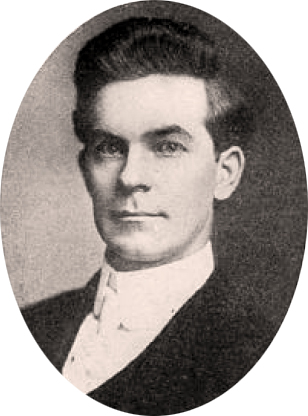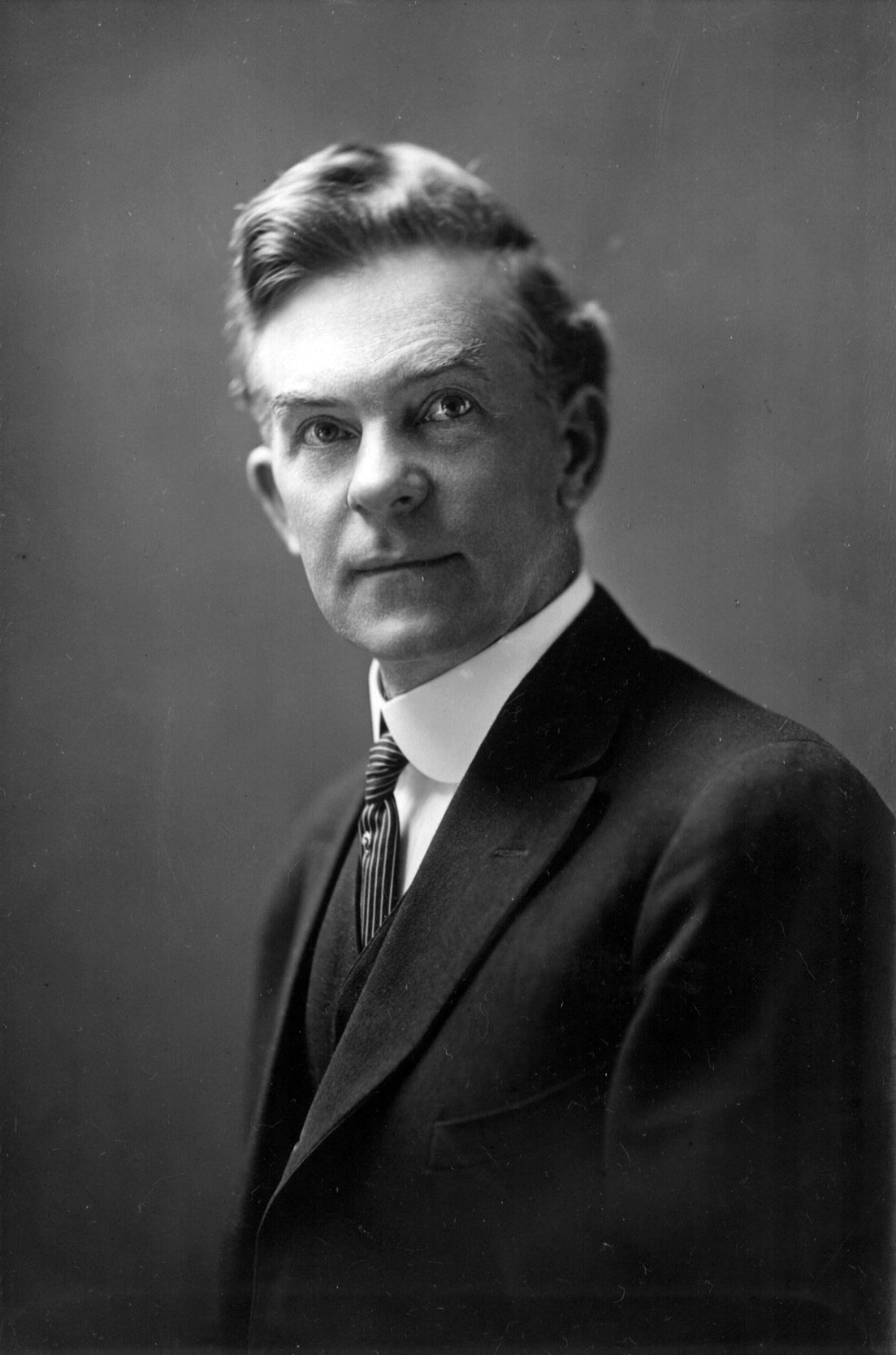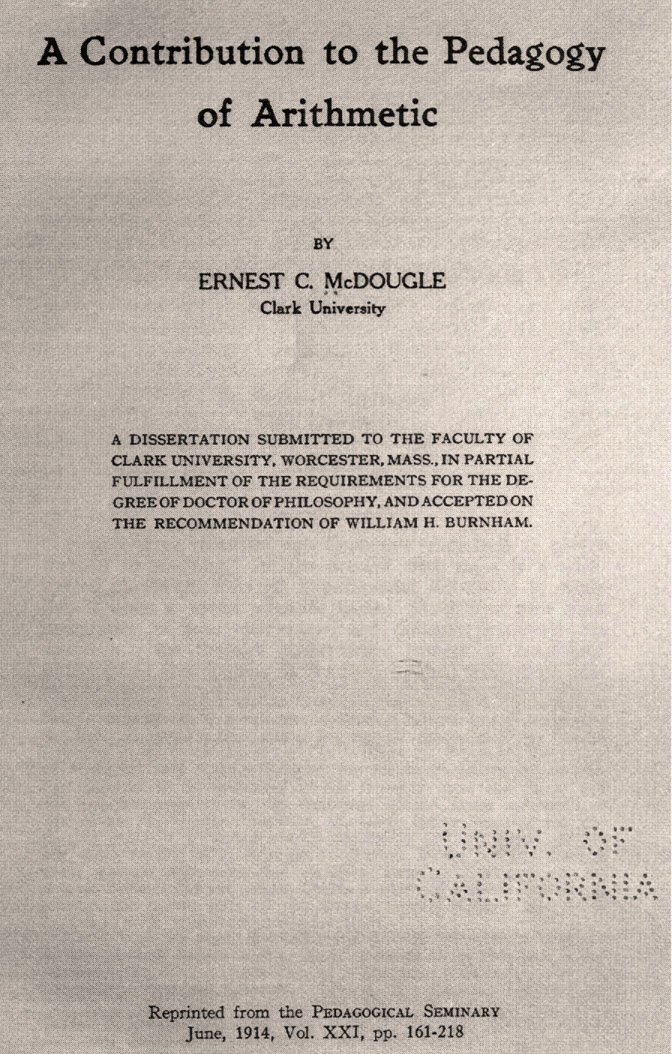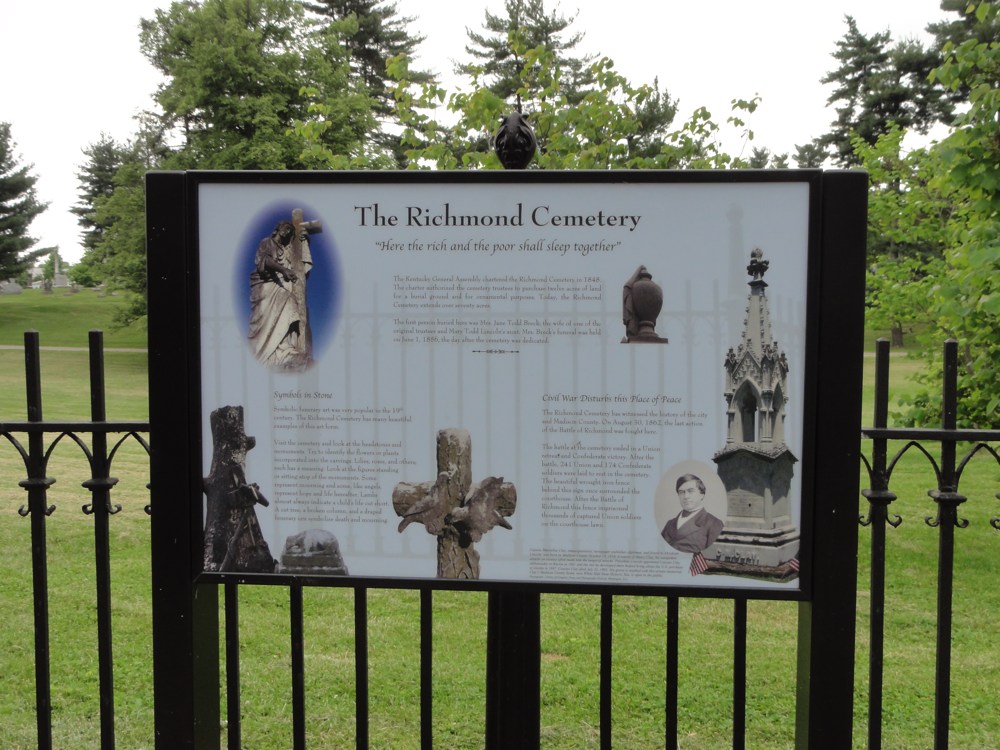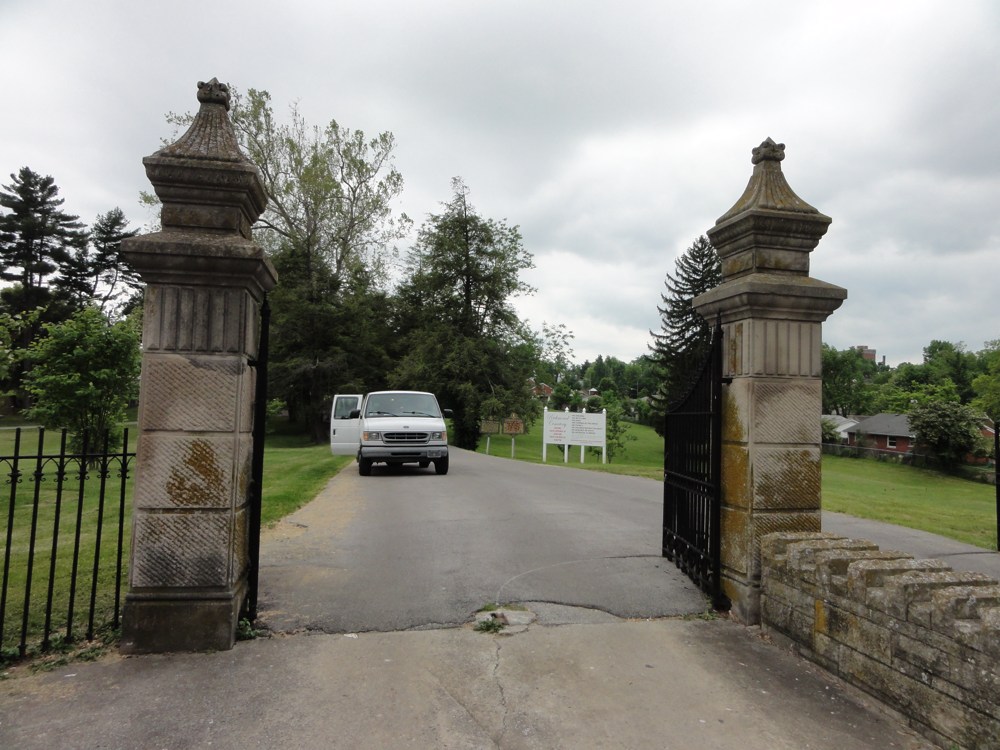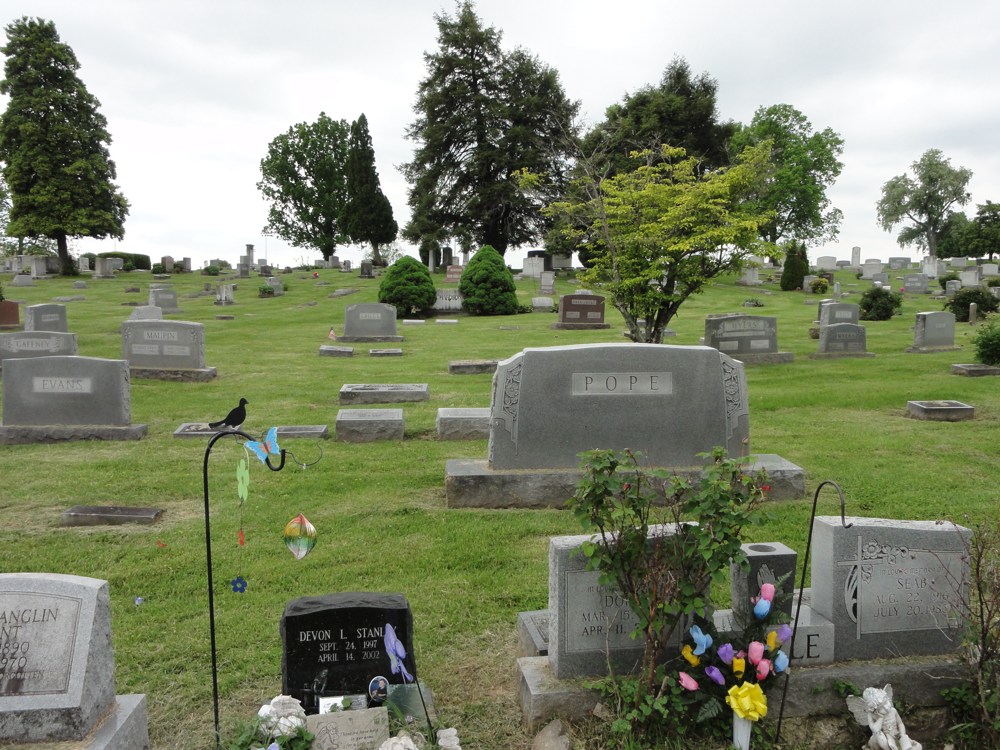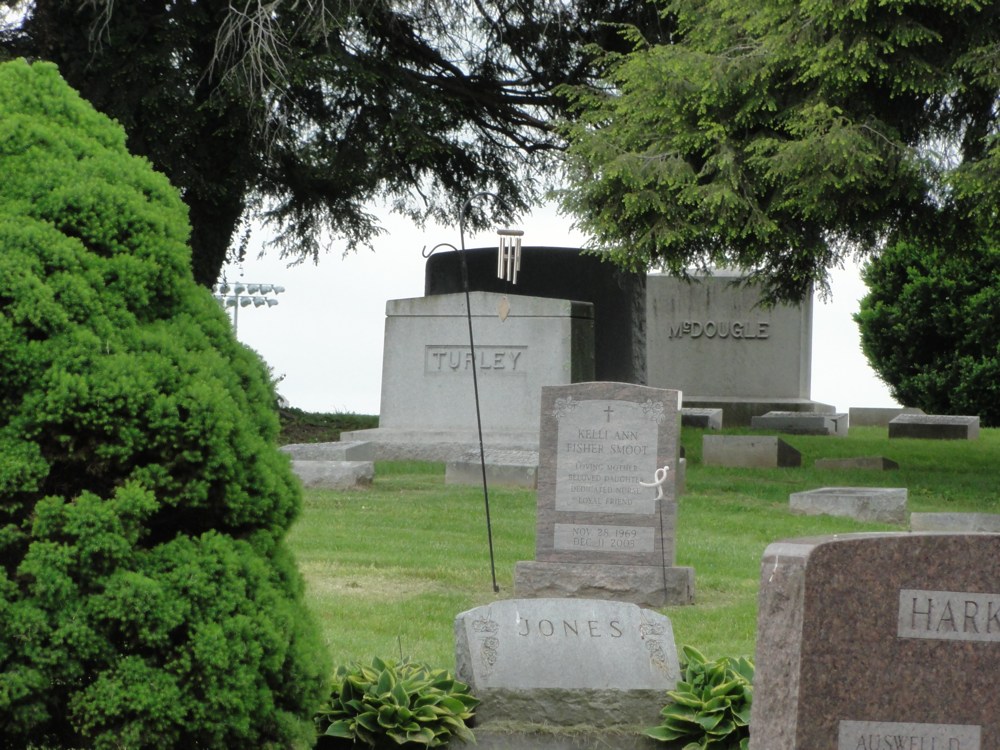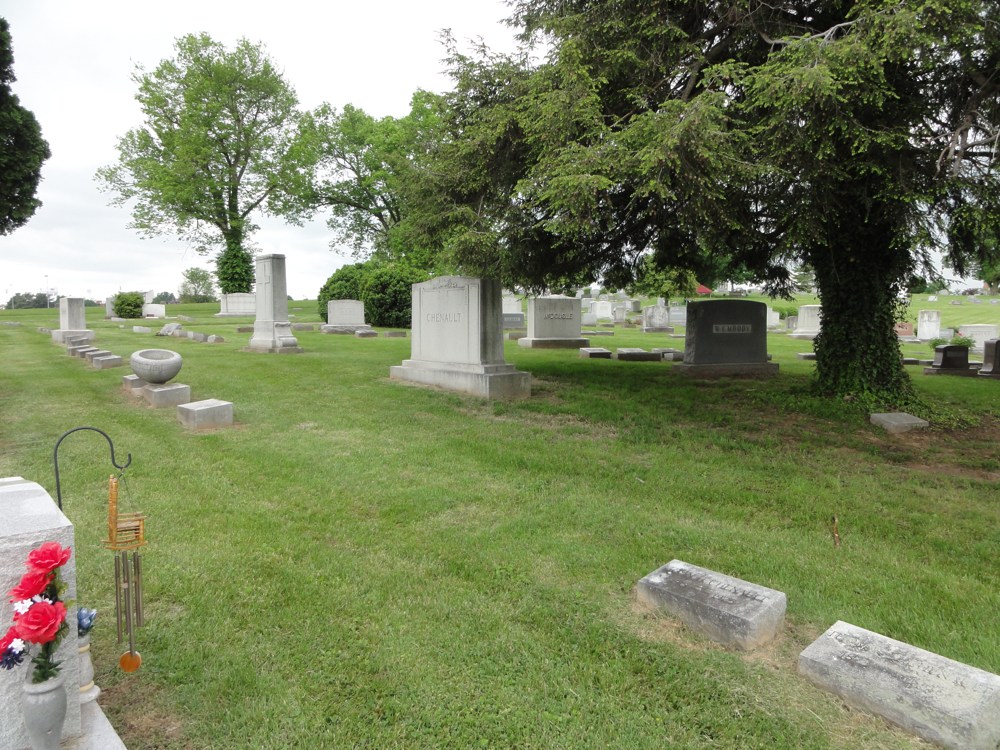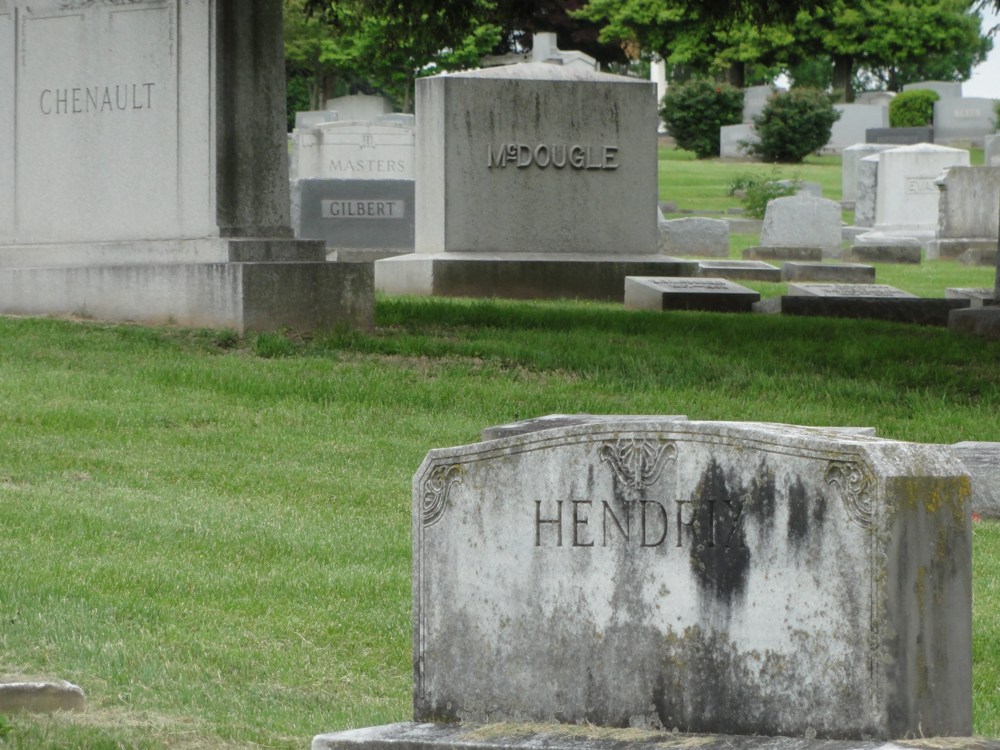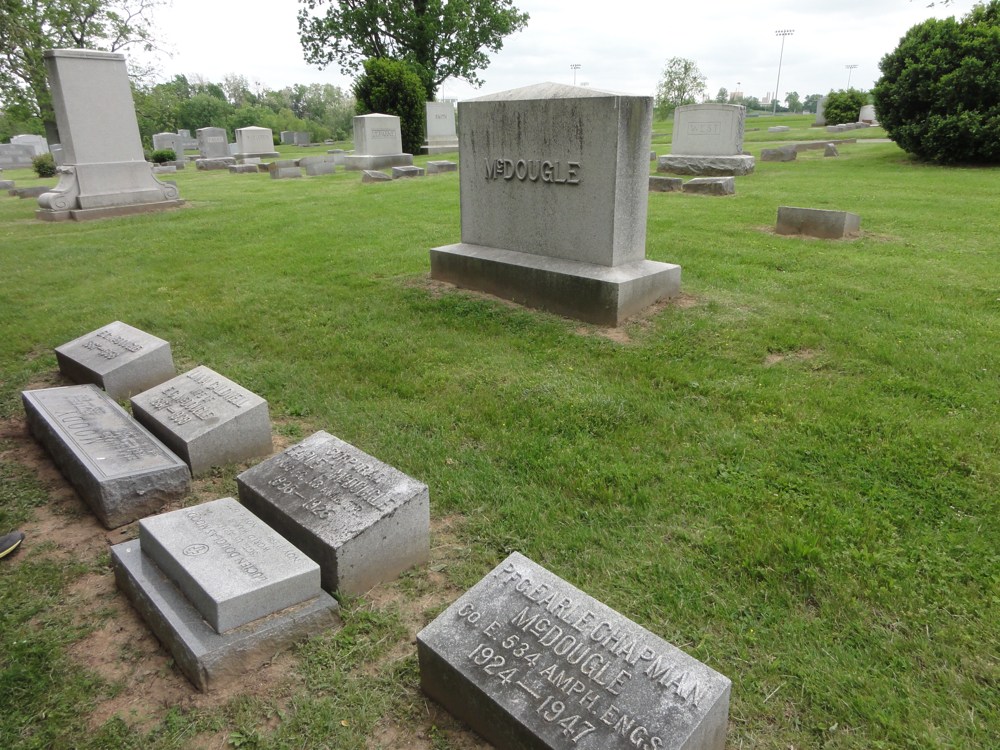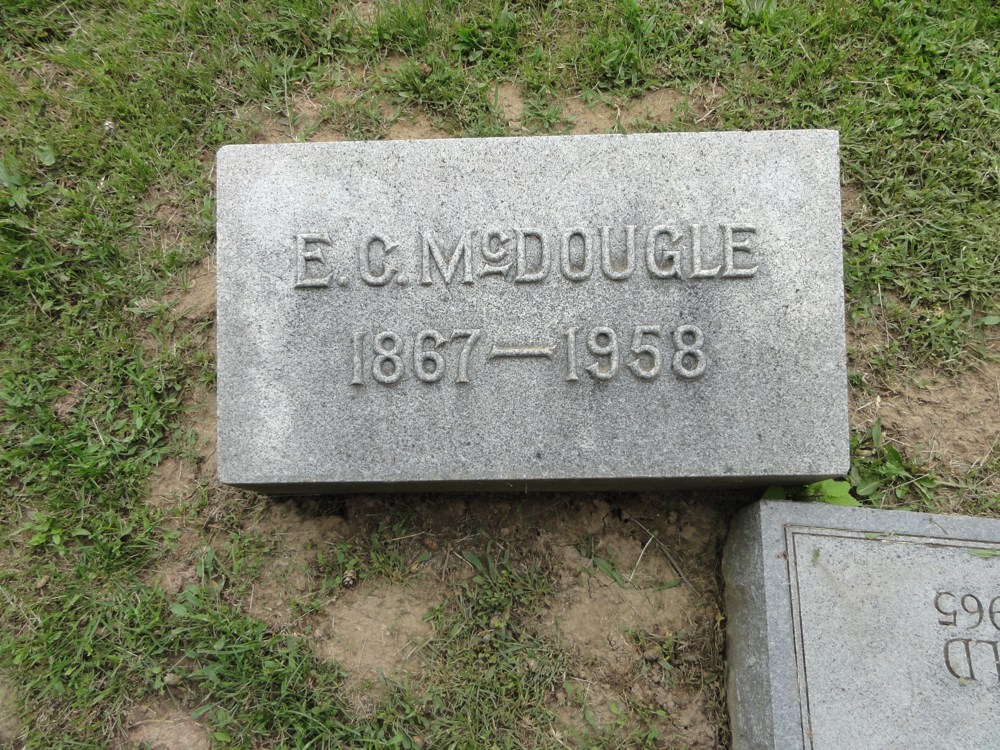Ernest Clifton McDougle
1867-1958
![]()
Ernest C. McDougle
A prominent and valued factor in connection with the educational interests of the state of Kentucky is Professor McDougle, who is now incumbent of the chair of pedagogy in the Eastern Kentucky State Normal School, at Richmond, the judicial center of Madison county. He is a man of ripe scholarship and marked administrative ability, and the symmetry of his character is shown in the fact that he has naught of intellectual bigotry or intolerance, but, on the contrary, has the deepest interest in aiding others to secure the best possibleeducation. In the domain of practical pedagogy his success has been of the most unequivocal order, and he has also attained to wide reputation as an institute conductor, commencement speaker and popular lecturer. A gracious person personality combines with distinctive ability to make him a force in the educational field, and he is thoroughly en rapport with the profession of his choice,—a vocation virtually paramount in importance to all others, since the sole demarkation between man and the brute is the development of his mental powers, as well illustrated in the pregnant lines of Browning: "Progress, man's distinctive mark alone,—not God's and not the beasts'; God is, they are; man partly is and partly hopes to be."
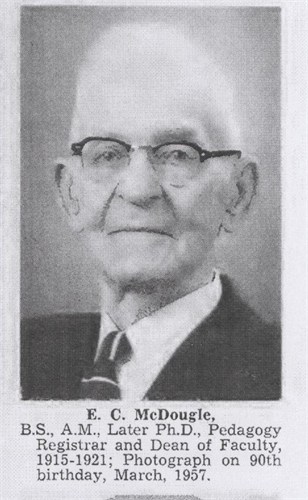 Ernest Clifton McDougle, B. S., A. M., was born in Meigs county, Ohio, on the 16th of March, 1867, and is a son of Samuel B. and Adelia (Cowdery) McDougle, representatives of old and honored families of the Buckeye state, where the father was actively engaged in agricultural pursuits for many years. The parents still reside at Long Bottom, Ohio, where they celebrated their fiftieth wedding anniversary, November 22, 1910. Professor McDougle was reared to the steady discipline of the farm and, after completing the curriculum of the public schools entered the National Normal University, at Lebanon, Ohio, in which he wasgraduated as a member of the class of 1891 and from which he received the degree of Bachelor of Science. In 1893 he received the degree of Bachelor of Arts from the Southern Normal University, at Huntingdon, Tennessee, and in 1895 the same institution conferred upon him the degree of Master of Arts. He has been actively engaged in normal school work for twenty years, and in this connection he has held many important positions. For three years he was professor of science in the Southern Normal University, of which institution he was president for one year. For five years he was professor of belles lettres and pedagogy in his alma mater, the National Normal University; and for five years prior to assuming his present incumbency, in 1907, he was president of Georgie Robertson College, at Henderson, Tennessee, an institution conducted under the auspices of the Christian church. As an instructor Professor McDougle has shown the highest ability both in imparting knowledge and in arousing the enthusiasm of students, whose affectionate regard he has invariably gained and retained. It is recognized that personality is a most important factor in connection with the work of the pedagogic profession, and by discipline and natural proclivities Professor McDougle has proved himself admirably fortified for the calling to which he is giving the best years of his life. He has been specially active in institute work, and in this connection his services have been demanded in widely separated sections of the Union. Within the past three years he has conducted twenty-seven teachers' institutes, and he has numerous engagements in this line for the years 1911 and 1912. In 1910 he conducted the largest single institute ever held in the state of Kentucky, and he is also frequently called upon to deliver popular addresses upon educational and literary subjects, as well as upon those of public import. Among his night lectures for institutes and other educational assemblies may be noted those bearing the following titles: "Literature and Life," "Footprints of the Educator." "The Culture of the Emotions," "The Greatest Thing in the Schoolroom," "The Little Red Schoolhouse and What it Does," "An Evening with Browning," "An Hour with Shakespeare," "The Personality of the Teacher," and "The School of Tomorrow.
Ernest Clifton McDougle, B. S., A. M., was born in Meigs county, Ohio, on the 16th of March, 1867, and is a son of Samuel B. and Adelia (Cowdery) McDougle, representatives of old and honored families of the Buckeye state, where the father was actively engaged in agricultural pursuits for many years. The parents still reside at Long Bottom, Ohio, where they celebrated their fiftieth wedding anniversary, November 22, 1910. Professor McDougle was reared to the steady discipline of the farm and, after completing the curriculum of the public schools entered the National Normal University, at Lebanon, Ohio, in which he wasgraduated as a member of the class of 1891 and from which he received the degree of Bachelor of Science. In 1893 he received the degree of Bachelor of Arts from the Southern Normal University, at Huntingdon, Tennessee, and in 1895 the same institution conferred upon him the degree of Master of Arts. He has been actively engaged in normal school work for twenty years, and in this connection he has held many important positions. For three years he was professor of science in the Southern Normal University, of which institution he was president for one year. For five years he was professor of belles lettres and pedagogy in his alma mater, the National Normal University; and for five years prior to assuming his present incumbency, in 1907, he was president of Georgie Robertson College, at Henderson, Tennessee, an institution conducted under the auspices of the Christian church. As an instructor Professor McDougle has shown the highest ability both in imparting knowledge and in arousing the enthusiasm of students, whose affectionate regard he has invariably gained and retained. It is recognized that personality is a most important factor in connection with the work of the pedagogic profession, and by discipline and natural proclivities Professor McDougle has proved himself admirably fortified for the calling to which he is giving the best years of his life. He has been specially active in institute work, and in this connection his services have been demanded in widely separated sections of the Union. Within the past three years he has conducted twenty-seven teachers' institutes, and he has numerous engagements in this line for the years 1911 and 1912. In 1910 he conducted the largest single institute ever held in the state of Kentucky, and he is also frequently called upon to deliver popular addresses upon educational and literary subjects, as well as upon those of public import. Among his night lectures for institutes and other educational assemblies may be noted those bearing the following titles: "Literature and Life," "Footprints of the Educator." "The Culture of the Emotions," "The Greatest Thing in the Schoolroom," "The Little Red Schoolhouse and What it Does," "An Evening with Browning," "An Hour with Shakespeare," "The Personality of the Teacher," and "The School of Tomorrow.
From many and most appreciative testimonials is taken the following estimate given by Professor John W. Withers, former president of the National Normal University, and now Head of Teachers College, St. Louis, and Assistant Superintendent of Schools, St. Louis, Missouri:
This will certify that I have known Professor E. C. McDougle for the past ten years. During the last five years we have been members of the faculty of the National Normal University. I can, therefore, speak confidently concerning his work and worth. He is a gentleman of beautiful Christian character, faithful and true in friendship, upright and pure in life, optimistic in disposition,—in short, every inch a man, in every respect worthy of the respect, honor and confidence which his friends and acquaintances have everywhere bestowed upon him. The fact that he has taught successfully almost every subject in the general department of the National Normal University is sufficient evidence of his culture and scholarship. He is an unusually forceful and persuasive public speaker, and is one of the most successful educators and institute instructors in the country. He is a man who will do his whole duty fearlessly, wherever he may be called to act.
Professor McDougle gives his political allegiance to the Democratic party, so far as national issues are concerned, and he is well fortified in his opinions as to matters of public polity. He and his wife are most zealous and devoted members of the Christian church and are active in the various departments of its work. He is affiliated with the Knights of Pythias and, possessing that great desideratum, mens sana in corpore sano, he takes a lively interest in out-door sports, in which connection he manifests distinctive "fan-proclivities," as touching the great national game, base ball.
On the 25th of August, 1891, was solemnized the marriage of Professor McDougle to Miss Linna Caldwell, who was born and reared in Meigs county, Ohio, where they were schoolmates in their youth and where Mrs. McDougle was a successful and popular teacher in the public schools prior to her marriage. Concerning the four children of this union the following brief data are given: Ivan, who was graduated in the Eastern Kentucky State Normal School, as a member of the class of 1910, received a life certificate as a teacher and is the youngest person in Kentucky to have this distinction at the present time; he is now assistant principal of the city schools of Carlisle, Kentucky; Miree, the only daughter, is a student in the Model High School in Richmond; and Earl is also attending the Model school. Marion, the baby of the home, was born August 10, 1907.
--- A History of Kentucky and Kentuckians, Volume 2, By E. Polk Johnson, Lewis Publishing Company, c. 1912, pages 826,827
![]()
What Happened To McDougle?
The history of Freed-Hardeman University and its predecessors is well known to students of the Restoration Movement. The West Tennessee Christian College was founded in I 886 in Henderson. In 1895 the College was merged with the Southern Tennessee Normal School of Essary Springs, with A. G. Freed as the President.
When the daughter of J. F. Robertson, Crocket Mills, Tennessee, died an untimely death, Mr. Robertson agreed to contribute five thousand dollars toward the erection of an adequate building to accommodate the College, provided it was re-named in honor of his deceased daughter, Georgia. In 1897 a twelve thousand dollar structure was built to house the newly created Georgia Robertson Christian College. Hall Laurie Calhoun of Franklin, Tennessee, delivered the dedicatory address when the building was completed. A. G. Freed continued as President with a faculty which included N. B. Hardeman, R. P. Meeks, C. B. Ijmas, L. L. Brigance and Calhoun. In 1902 Ernest Clifton McDougle, Huntington, Tennessee, became co-President with Freed. In all probability Robertson and the Tennessee State Missionary Society influenced the selection of McDougle (because he represented the liberal views of those in the Christian Church who favored the use of an organ and affiliation with the Missionary Society) in an effort to lessen the influence of Freed upon the college who opposed both.
E. C. McDougle was born in Keno, Meigs County, Ohio, on March 16, 1867. He earned a baccalaureate degree from National Normal University, Lebanon, Ohio; a Master's degree from Southern Normal University, Huntington, Tennessee; and a doctor of Philosophy degree from Clark University in 1914. He went from Ohio to Tennessee in 1891 to teach in Southern University and to serve as minister of the Huntington Christian Church. He reported through the Gospel Advocate many successful revivals held in Huntington by leading evangelists including Hall Laurie Calhoun.
McDougle joined the faculty of Georgia Robertson Christian College at the opening of the fall term on September 9, 1902 as professor of Greek, Latin, Pedagogy, Botany, Physiology, and Surveying. The College was reputed to be "the largest and best equipped independent normal school south of the Ohio River.
By 1903, McDougle began to write a series of articles for the Christian Standard which he titled "Some Tennessee Notes. He reported a very successful school year and anticipation of 600 students with a graduating class of seventy-five in 1903.
He also reported on the progress which the churches were making in West Tennessee, the missionary efforts of the Henderson Christian Church, and the evangelistic successes enjoyed by the faculty and students. He reported the Freed-Hall debate held in Bardwell, Kentucky and the Freed-Pigue debate in Middleton, Tennessee, that F. B. Srygley had baptized twenty-two at Hornbeak, that John R. Williams was conducting a tent meeting at Greenfield and that N. B. Hardeman had baptized ninety-nine during his summer meetings.
There were "nineteen young persons in (the) Preachers' Bible Class, including L. L. Brigance, R. D. Smith, D. S. Ligon and Len D. Williams, who are doing some preaching." McDougle concluded his report by saying, "we rejoice to see the Standard's progress in the south. It is just entering the threshold of its opportunity and usefulness among our southern brotherhood." (The Standard had already gained acceptance among the churches in the north.) However, the optimism for the College and the "digressive movement" which he expressed was short-lived in.the region of West Tennessee and Kentucky. In January of 1903, E. A. Elam went to Henderson to conduct a gospel meeting. The Christian Church refused to permit Elam to preach in the meeting house so he preached in the Baptist Church. The preaching of Elam drew the lines more closely between McDougle and his liberal associates and Freed and his conservative associates.
Freed and Hardeman objected to the use of an organ and affiliation with the missionary society while McDougle and Meeks endorsed both. Gospel preachers like John R. R. Williams, W. R. Hassell, Eph Smith and J. W. Ratcliffe agreed with Freed and Hardeman. The following September Joe Warlick met Carroll Stark in a debate in Henderson on the question of the use of instruments of music in worship. The Elam meeting and the Warlick-Stark debate resulted in a separation by most of the faculty, students and members of the Christian Church to form the Henderson Church of Christ.
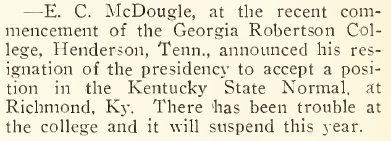
The Christian-Evangelist, Our Budget section, July 4, 1907, p.852
By the time the college school year closed in the spring of 1905, Freed had sold his one-half interest in the chattel of Georgia Robertson Christian College to McDougle. Freed moved to Denton, Texas, and Hardeman became superintendent of Chester County Schools. The State Missionary Society took possession and control of the College and appointed a board of directors with J. F. Robertson as chairman. The Board named McDougle as the president. The College lost its financial support and its student body and was able to operate only until the close of the school year in 1907. McDougle took all that he had invested in the College and moved to Richmond, Kentucky, where he became associated with the Eastern Kentucky Normal School.
McDougle exerted a great influence on the early growth and development of the teacher training institution at Richmond. He was an outstanding class room teacher and devoted much of his time organizing and conducting "teacher institutes" in the rural sections of Kentucky, Ohio and West Virginia. He also served in various administrative capacities in the College: business agent, registrar, and dean.
McDougle wrote a book titled, "Pedagogy In Arithmetic" in 1914 which may have been taken from his doctoral dissertation. In addition to his work with the Teachers College he studied and practiced law, served one term as the Democratic Judge of Madison County, and preached for the rural congregations of the Christian Church. Usually he would preach once each month for four different churches. He served as an elder and taught the Turley Bible Class for men in the Richmond First Christian Church.
When McDougle first went to Kentucky. John William McGarvey was president of the College of the Bible and attending the non-organ Chestnut Street Christian Church in Lexington. Hall Laurie Calhoun was a professor in the College of the Bible and preaching for the Providence (non-organ) Christian Church in Jessamine County. There is no record of McDougle's association with McGarvey and Calhoun, but he nevertheless continued his identity with the organ and society groups as he had done while living in Henderson.
In the early part of the 1900's very few of the restoration churches in the Common-wealth of Kentucky had accepted the use of mechanical instruments of music in public worship. However, McDougle influenced many of the congregations in the Bluegrass region to endorse an organ and affiliate with the missionary society. In fact the history of the Churches of Christ in central Kentucky would have been greatly different had McDougle agreed to follow the examples of Freed and Hardeman in 1903 and had brought this position to Kentucky in 1907.
By 1950 all of the congregations which had been established by the early restorers in Madison County had left the plea to "speak where the Bible speaks and remain silent where the Bible is silent." In 1951 the Church of Christ was re-established in Richmond during the time that McDougle was still living. He, of course, had nothing to do with the effort. I went to Richmond one Sunday afternoon and preached in a science laboratory on the campus. There is a strong and thriving congregation in the city today.
E. C. McDougle died in Richmond on February 11. 1958, and was buried in the city cemetery. Dr. Basil Overton was preaching for the Richmond Church of Christ during the latter years of McDougle and visited with him in his home. Overton wrote to Hardeman, who was living in Memphis, Tennessee, about his visit with McDougle. Hardeman replied in a letter dated February 26, I 957, in which he wrote:
I am truly glad that you went to see Bro. McDougal (sic). I have written him since yours came. He is one of the best teachers I ever knew. I wish he would give up Christian Church ways, but he won't.
No doubt Brother Hardeman had tried to persuade McDougle to "give up Christian Church ways" over fifty years earlier, but he would not, and he never did.
-Adron Doran, Firm Foundation, May, 1991, page 22,23
![]()
A Contribution To The Pedagogy Of Arithmetic
![]()
Directions To The Grave of E.C. McDougle
From Lexington, Kentucky, head south on I-75 to Exit 87, Hwy. 876, Barnes Mill Rd./Eastern Bypass and head into Richmond. Go about a mile and turn left on Lancaster Ave. (Hwy. 52). Go nearly a half-mile, then turn right on University Dr. Go about a half mile and turn right on Summit St. Summit will go into the cemetery and head to the very back of the cemetery. At the end, turn right. Go past the first section to the right. The drive will bear around to the right. Go to the top of the hill and look for a large section of trees on the right. The McDougle plot is at the edge of the trees.
GPS Location
37.74078,-84.29146
View Larger Map
![]()
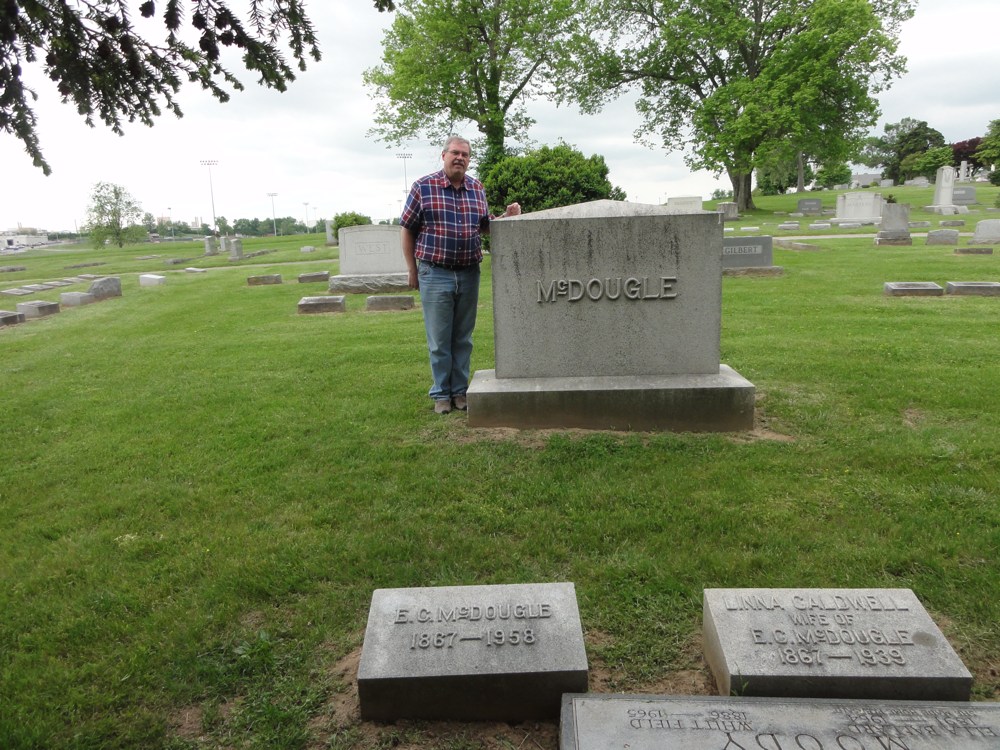
Scott Harp at the grave of E.C. McDougle
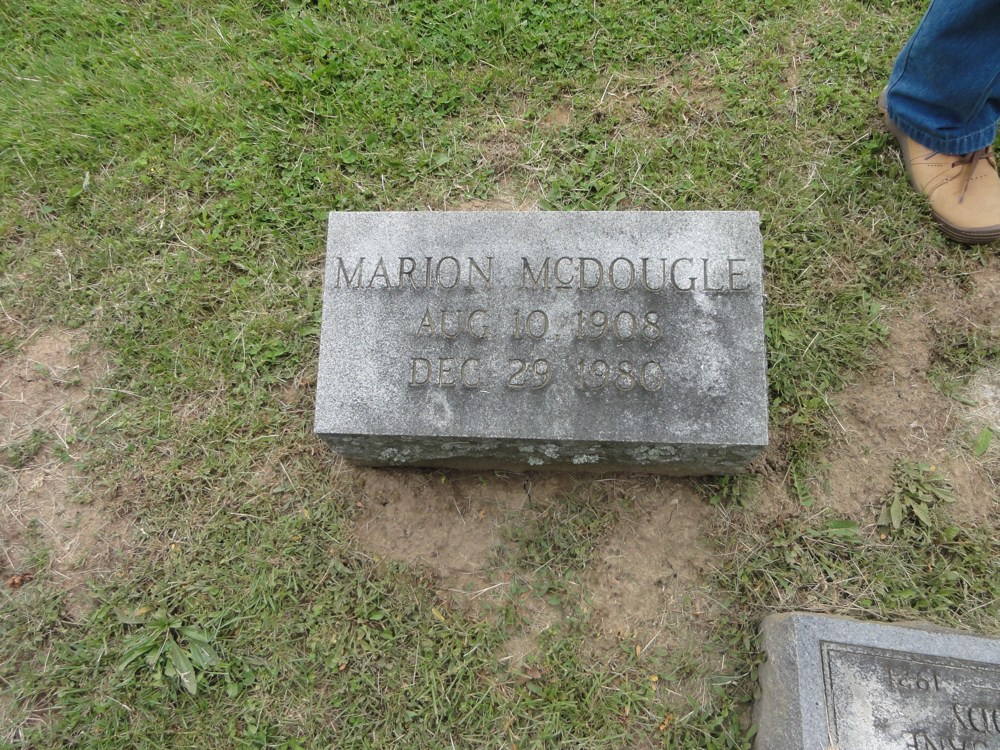
Marion McDougle
August 10, 1908
December 29, 1980
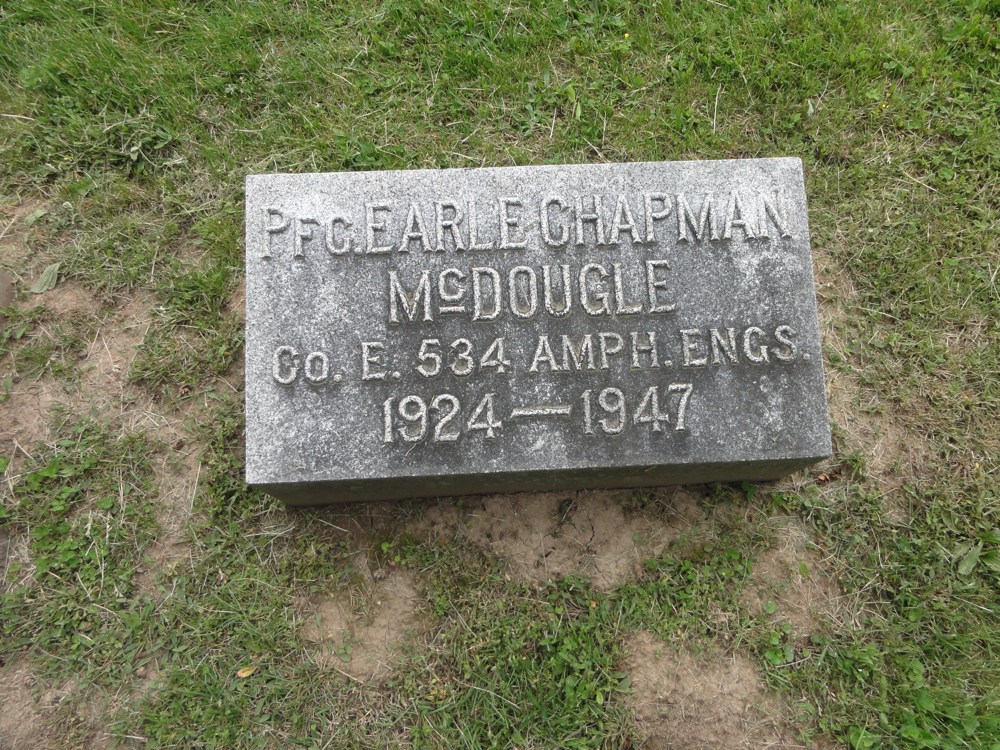
Pfc. Earle Chapman McDougle
Co. E. 534 AMPH. ENGS.
1924-1947

Corporal Earle C. McDougle
Co. 3. 12 AMM. TR
1896-1925
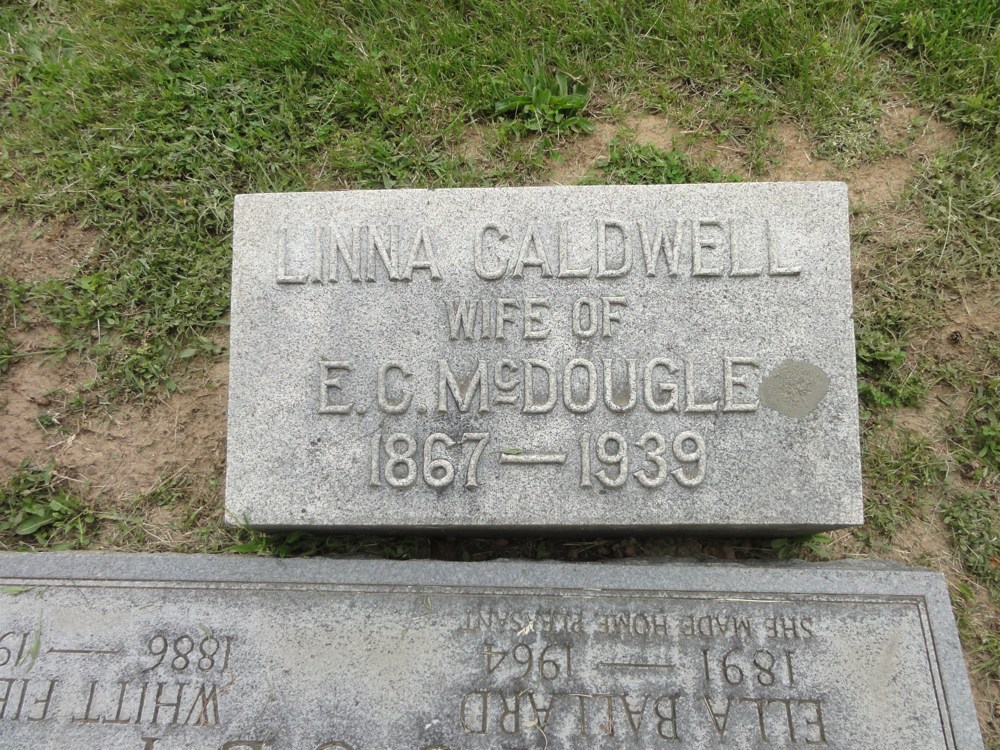
Linna Caldwell
Wife Of
E.C. McDougle
1867-1939
![]()
Photos Taken 05.16.2013
Page Produced 08.27.2013
Courtesy of Scott Harp
www.TheRestorationMovement.com
![]()
